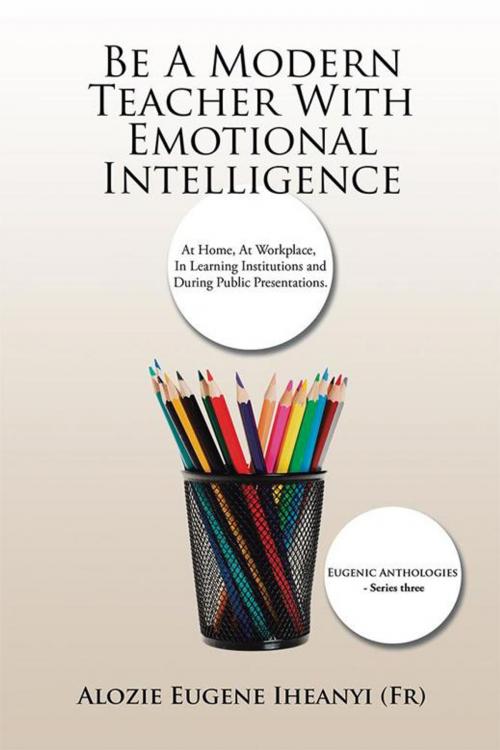Be a Modern Teacher with Emotional Intelligence
At Home, at Workplace, in Learning Institutions and During Public Presentations.
Nonfiction, Reference & Language, Education & Teaching, Teaching, Teaching Methods| Author: | Alozie Eugene Iheanyi | ISBN: | 9781504988841 |
| Publisher: | AuthorHouse UK | Publication: | August 25, 2015 |
| Imprint: | AuthorHouse UK | Language: | English |
| Author: | Alozie Eugene Iheanyi |
| ISBN: | 9781504988841 |
| Publisher: | AuthorHouse UK |
| Publication: | August 25, 2015 |
| Imprint: | AuthorHouse UK |
| Language: | English |
In the past ten years of pastoral vocation as a Catholic Priest, I have dedicated not less than eight years in apostolates intrinsically tied to mentoring of young people and classroom teaching. After completing my bachelors degree; I worked for six years as a secondary school principal in Nigeria before I received the call to come over to Europe for the continuation of my ministerial experience and learning. In all these years, both from studies and in practical experience, I have realized that education is meant to enhance the lives of people and improve them. In the course of researching for my Masters degree, I became aware of the concept of emotional intelligence. I saw in it an apt and timely addendum to the entire course of research and to educational research in particular. The fact is that human life, its reality and goals is the very context inside which learning should be done and for which learning is done. This is what makes education have meaning and determines its usefulness, and it is only in this context that we can say that education prepares one for life and its challenges. Directly or indirectly, emotional intelligence makes a contribution to preparation for living in the modern world. Educational enterprise is not exclusive to the activities that take place within the four walls of a formal classroom. I accept the educational learning theory which says that learning is everywhere for a conscious mind, though it always needs to be tuned and guided. In fact there are a huge number of para-teachers, such as parents, coaches, mentors, pastors, inspirers, trainers and leaders, who do not know the extent to which their day-to-day teachings and drilling of others affect the psychology of society at large. This is because the teaching, mentoring and coaching of such para-teachers influences the emotional intelligence of their followers and learners, most often in a positive way. Emotional intelligence was a ground-breaking theory developed by Daniel Goleman, not only on to teach how best to teach and inspire, but also to make an important link between the learning achievement of the classroom and success in real life situations. This is called knowledge transfer in education.
In the past ten years of pastoral vocation as a Catholic Priest, I have dedicated not less than eight years in apostolates intrinsically tied to mentoring of young people and classroom teaching. After completing my bachelors degree; I worked for six years as a secondary school principal in Nigeria before I received the call to come over to Europe for the continuation of my ministerial experience and learning. In all these years, both from studies and in practical experience, I have realized that education is meant to enhance the lives of people and improve them. In the course of researching for my Masters degree, I became aware of the concept of emotional intelligence. I saw in it an apt and timely addendum to the entire course of research and to educational research in particular. The fact is that human life, its reality and goals is the very context inside which learning should be done and for which learning is done. This is what makes education have meaning and determines its usefulness, and it is only in this context that we can say that education prepares one for life and its challenges. Directly or indirectly, emotional intelligence makes a contribution to preparation for living in the modern world. Educational enterprise is not exclusive to the activities that take place within the four walls of a formal classroom. I accept the educational learning theory which says that learning is everywhere for a conscious mind, though it always needs to be tuned and guided. In fact there are a huge number of para-teachers, such as parents, coaches, mentors, pastors, inspirers, trainers and leaders, who do not know the extent to which their day-to-day teachings and drilling of others affect the psychology of society at large. This is because the teaching, mentoring and coaching of such para-teachers influences the emotional intelligence of their followers and learners, most often in a positive way. Emotional intelligence was a ground-breaking theory developed by Daniel Goleman, not only on to teach how best to teach and inspire, but also to make an important link between the learning achievement of the classroom and success in real life situations. This is called knowledge transfer in education.















